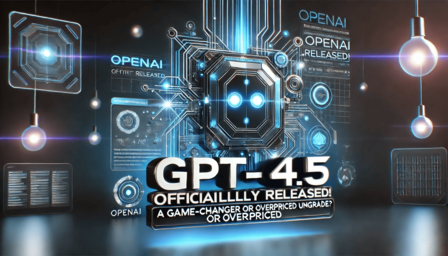The integration of artificial intelligence (AI) within the legal industry has become progressively more significant as firms seek efficient solutions to handle the mounting demands of modern legal practice. As legal professionals face increasing workloads and the necessity to manage vast amounts of information, AI technologies have emerged as pivotal allies. Specifically, AI assistants are designed to streamline processes, reduce the burden on overworked paralegals, and provide substantial support in legal research and documentation.
One of the primary motivations driving the adoption of AI in legal applications is the need for improved efficiency. Traditional legal tasks, which often require extensive hours of manual effort, can be automated through advanced algorithms and machine learning. By implementing AI tools, law firms can expedite case research, document review, and contract analysis, ultimately allowing legal teams to focus on higher-value activities and strategic decision-making. This transformation not only enhances operational workflows but also fosters greater accuracy, reducing the likelihood of human error in legal documentation.
Moreover, the use of AI assistants in legal contexts offers potential financial advantages. By leveraging AI tools, firms can minimize labor costs and reallocate resources towards more critical areas of practice. This cost-effectiveness can prove invaluable, especially for smaller firms that may be susceptible to the challenges of competing against larger entities. The resulting increase in productivity can also lead to enhanced client satisfaction, as clients benefit from faster turnaround times and improved service levels.
As we delve deeper into the advancements made by companies like LexisNexis, it is essential to appreciate the role that AI is poised to play in shaping the future of legal assistance. The development and deployment of these tools are indicative of a broader trend towards the incorporation of intelligent systems in the legal field, marking a pivotal transition that holds promise for both practitioners and clients alike.
LexisNexis Innovations
In recent months, LexisNexis has made significant strides in the development of small models designed to function as AI assistants in the legal sector. These innovations aim to enhance the efficiency and accuracy of paralegal tasks, ultimately enabling legal professionals to focus on more complex aspects of their work. One of the standout features of these small AI models is their capability for comprehensive legal research. By harnessing vast databases and employing advanced algorithms, these AI assistants can quickly sift through millions of documents, case laws, and statutes to provide relevant information tailored to specific legal queries.
Another remarkable feature of LexisNexis‘s AI models is document analysis. These systems can effectively identify key elements within legal documents, highlighting pertinent sections and flagging potential issues that may require further examination. This capability not only streamlines the review process but also aids in minimizing human error, which is critical in the practice of law. As such, legal professionals can rely on AI-powered tools to bolster their analyses, ensuring thorough and accurate assessments of the documentation they encounter.
Additionally, case summarization stands out as a key innovation offered by LexisNexis. The AI assistants can generate concise summaries of cases, distilling complex legal concepts and details into easily digestible formats. This feature is particularly beneficial for lawyers who need to quickly understand case precedents or prepare for litigation. By automating the summarization process, LexisNexis provides legal professionals with valuable time savings and enhances overall productivity. Collectively, these advancements position LexisNexis at the forefront of legal AI technology, redefining how paralegal work is approached in modern law practices.
The Role of Small Models in Legal Work
In the rapidly evolving landscape of legal technology, small AI models have emerged as vital tools for enhancing the efficiency and accuracy of legal work. These compact yet powerful AI assistants streamline various tasks traditionally conducted by legal professionals, including lawyers and paralegals. By automating routine processes, they significantly reduce the workload, allowing human staff to focus on more complex legal matters and client interactions.
One prominent application of small AI models is in legal research. In this context, AI assistants can sift through vast databases of legal texts, case law, and statutes within moments, pinpointing relevant information that might take human researchers hours or even days to uncover. This efficiency not only accelerates the research process but also enhances the accuracy of the results, thereby reducing the risk of oversight in a field where precision is paramount.
Beyond legal research, small AI models facilitate document management and review processes. They are capable of identifying key clauses, highlighting inconsistencies, and even suggesting revisions based on predefined parameters. Paralegals, who often play a crucial role in document preparation and review, can leverage these AI tools to expedite workflows while simultaneously maintaining or even improving the quality of the output. This synergy between AI and human expertise fosters a more productive legal environment where both technical capabilities and human judgment are maximized.
Moreover, the cost-effectiveness of employing small AI models is undeniable. By reducing the time needed to complete legal tasks, law firms can minimize operational costs while providing high-quality services to their clients. Clients benefit from more competitive pricing, as firms equipped with advanced AI assistants can maintain high levels of service with fewer resources. Thus, small AI models not only empower legal professionals but also reshape the financial landscape of the legal industry.
Impact on Legal Professionals
The advent of artificial intelligence (AI) tools, such as those developed by LexisNexis, is reshaping the legal profession in profound ways. As these AI assistants become more adept at handling tasks traditionally performed by human paralegals, concerns about job displacement among legal professionals have emerged. While it is undeniable that AI can automate many routine functions, it is important to recognize that the primary role of AI in the legal sector should be seen as a complement to human workers rather than as a complete replacement.
AI tools can take on time-consuming tasks, such as document review and data analysis, allowing lawyers to focus on more complex and nuanced aspects of their practice. This shift may necessitate new skill requirements for current and future legal professionals. Lawyers will increasingly need to develop competencies in technology and data interpretation, ensuring that they can effectively collaborate with AI systems. As a result, education programs may evolve to incorporate these essential skills, preparing the next generation of lawyers for an innovative legal landscape.
Additionally, the integration of AI assistants within legal practices presents opportunities to enhance the quality of legal services. For instance, by streamlining processes and providing insights through data analysis, AI can help lawyers make more informed decisions, leading to better client outcomes. Furthermore, AI tools can increase accessibility to legal information for clients, potentially democratizing access to legal services.
In conclusion, while the rise of AI in the legal field brings concerns about job displacement, it also opens up avenues for improved efficiency and effectiveness within legal practice. Embracing these changes can enable legal professionals to focus on their core responsibilities while leveraging technology for enhanced service delivery, creating a balanced relationship between AI and human expertise.
Case Studies of AI Utilization in Law Firms
The integration of AI tools from LexisNexis into law firms has led to transformative changes in legal assistance and operations. Various firms have embraced these advancements, showcasing substantial improvements in efficiency and client service. For instance, a prominent mid-sized law firm implemented LexisNexis’ AI assistant for document review and case research. As a result, the firm reported a reduction in the time spent on these tasks by over 40%, allowing their paralegals to reallocate resources towards more complex legal issues, ultimately enhancing the firm’s overall productivity.
Another example can be found in a large corporate law firm that adopted LexisNexis‘ AI-driven predictive analytics tools. This technology enabled the firm to assess the potential outcome of cases more accurately. By analyzing historical data and case law, the AI assistant provided insights that were previously unattainable through traditional research methods. The firm recognized a 20% increase in favorable case outcomes, which directly contributed to improved client satisfaction and retention rates. This case demonstrates how AI can not only streamline processes but also bolster decision-making in high-stakes environments.
Moreover, a small boutique law firm implemented LexisNexis’ AI tools for contract analysis. With the AI assistant’s capability to analyze and extract critical contract clauses efficiently, the firm reduced the time needed for contract reviews by 60%. This reduction not only expedited the transaction process for their clients but also minimized the risk of oversight of key contract elements. The measurable benefits included quicker close times on transactions, which translated into enhanced client trust and an increase in referrals.
These case studies illustrate that the strategic deployment of AI tools in legal practices can yield significant operational benefits. Law firms that have integrated these technologies have experienced improvements in efficiency, accuracy, and client satisfaction, highlighting the substantial role AI assistants play in contemporary legal practices.
Future Trends in Legal AI
The landscape of legal assistance is poised to undergo a transformation driven by advancements in artificial intelligence (AI). As legal professionals increasingly recognize the potential of AI assistants, such as those developed by LexisNexis, the future of legal services appears to be evolving rapidly. This shift underscores the premise that AI will play a pivotal role in streamlining legal processes, improving access to justice, and enhancing decision-making capabilities.
Emerging technologies are likely to expand the scope of AI’s application within the legal sector. Innovations such as natural language processing (NLP) and machine learning algorithms promise to refine the way legal data is analyzed and interpreted. These technologies will enhance AI assistants, allowing them to comprehend complex legal terminology and provide more accurate insights. As a result, legal professionals will be better equipped to handle intricate cases efficiently, reducing turnaround times and improving overall productivity.
The evolution of AI capabilities is not just limited to efficiency; it also heralds a potential cultural shift within law firms. The increased reliance on AI may alter traditional roles, with paralegals and attorneys focusing on higher-level strategic tasks while delegating routine, repetitive tasks to AI systems. This collaboration between human expertise and AI will redefine job roles in legal firms, leading to a more integrated approach to legal assistance.
Moreover, the broader implications for the legal profession encompass a heightened focus on ethical considerations. As AI tools gain traction, law firms must navigate challenges pertaining to data privacy and algorithmic bias. LexisNexis is already addressing these concerns by implementing frameworks that promote ethical use and accountability in AI applications.
In conclusion, as the legal sector embraces AI technology, we can expect a future marked by enhanced capabilities, transformed roles, and a commitment to ethical standards. LexisNexis’s innovative strides in the realm of AI tools will undoubtedly be central to shaping this exciting evolution in legal assistance.
Ethical Considerations and Concerns
The integration of AI assistants in the legal field brings forth a myriad of ethical considerations that demand diligent examination. As legal practitioners increasingly rely on AI tools for tasks typically performed by paralegals, such as research and document analysis, concerns regarding algorithmic bias become prominent. These AI systems are often trained on datasets that may contain inherent biases, leading to the potential for skewed results that could impact legal outcomes. Recognizing and mitigating these biases is crucial to ensure fairness in legal processes.
Moreover, data privacy remains a significant element of ethical discourse surrounding AI implementations in legal settings. With AI assistants analyzing vast quantities of sensitive information, the secure handling of client data is vital. Legal professionals must adhere to strict confidentiality standards to protect client communications and proprietary information. This places an onus on developers of these AI tools to implement robust privacy protocols and engage in transparent data management practices.
The question of accountability is another pivotal concern. As AI assistants facilitate various legal functions, determining liability in cases of inaccurate legal advice or erroneous document generation becomes essential. Legal professionals need to establish clear guidelines that delineate the parameters of AI usage, ensuring that accountability does not drift away from human oversight. Furthermore, ongoing monitoring of these systems is necessary to safeguard against potential misuses and to uphold the integrity of legal practices.
In conclusion, while AI assistants, such as those developed by LexisNexis, hold the potential to streamline legal processes and enhance paralegal efficiency, it is crucial that the legal industry approaches their adoption responsibly. By addressing the ethical implications concerning bias, data privacy, and accountability, stakeholders can foster an environment where AI technology complements legal expertise while upholding the fundamental tenets of justice and fairness.
Insights from Legal Experts
As artificial intelligence continues to permeate the legal industry, many experts provide valuable insights into the evolving role of AI assistants, particularly in the context of small models. Legal professionals recognize that these AI tools can enhance productivity while minimizing the workload on human paralegals. According to Samantha Rowe, a senior legal analyst, integrating AI assistants into daily operations allows legal teams to focus their efforts on more strategic tasks that require critical thinking. This ultimately leads to more efficient case management and client service.
Moreover, Dr. Harold Finch, an AI developer specializing in legal technologies, suggests that small models can effectively handle repetitive tasks, such as document review and contract analysis. He emphasizes that leveraging these AI tools can significantly reduce the time it takes to process large volumes of information, which is crucial in the fast-paced legal environment. These advancements pave the way for lawyers to allocate more time to engage with clients and invest in complex legal strategies, thereby augmenting their core capabilities.
On the other hand, some industry analysts express caution. Jane Hutton, a technology researcher, warns that while AI assistants promise efficiency, there are inherent risks in depending too heavily on automation. She posits that small models lack the nuanced understanding of human emotions and legal intricacies, which can lead to oversights in critical situations. Legal professionals must remain vigilant and ensure proper oversight when integrating these AI applications to balance efficiency with the ethical ramifications of legal work.
As the conversation around the role of AI in law evolves, it is clear that both potential benefits and challenges exist. Stakeholders are urged to continue evaluating the impact of AI assistants in legal settings to harness their advantages while addressing the concerns associated with their implementation.
The Next Steps for Legal AI
As the legal profession continues to evolve, the integration of AI assistant technologies like those developed by LexisNexis represents a significant leap forward. The utilization of small models as paralegals provides a glimpse into a future where legal assistance can be both efficient and cost-effective. These AI tools are designed to streamline various legal processes, helping legal professionals manage tasks that would traditionally burden them with voluminous research and documentation. The enhancement of productivity through AI assistants is critical as the demand for legal services grows.
Furthermore, the deployment of these AI systems raises important questions about the changing nature of legal employment. As legal tasks become automated, will paralegals and lawyers shift their focus towards more complex, nuanced legal issues? It is essential to recognize that, while AI can handle routine tasks, the core aspects of legal reasoning and client interaction will still depend on human expertise. This collaboration between AI and legal practitioners can foster a more dynamic working environment, fostering an era where technology augments human capability rather than replaces it.
In light of these advancements, legal professionals must consider how best to leverage AI assistant technologies. Training and adaptation will be vital, as law firms and legal departments seek to integrate these tools effectively. It will also be necessary to evaluate ethical implications and ensure accountability in utilizing AI systems within the legal framework. As we look to the future, the path forward involves not only embracing AI but also proactively shaping the relationship between human lawyers and intelligent systems. The question remains: how will the legal sector adapt to ensure that advancements in AI serve to enhance, rather than diminish, the essential human elements of the practice of law?



